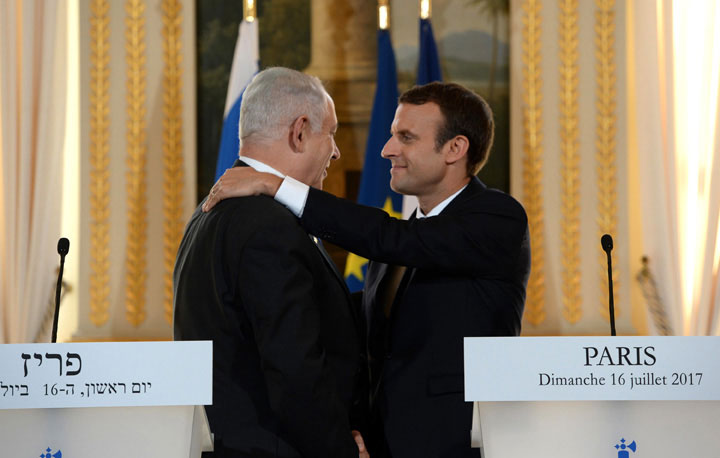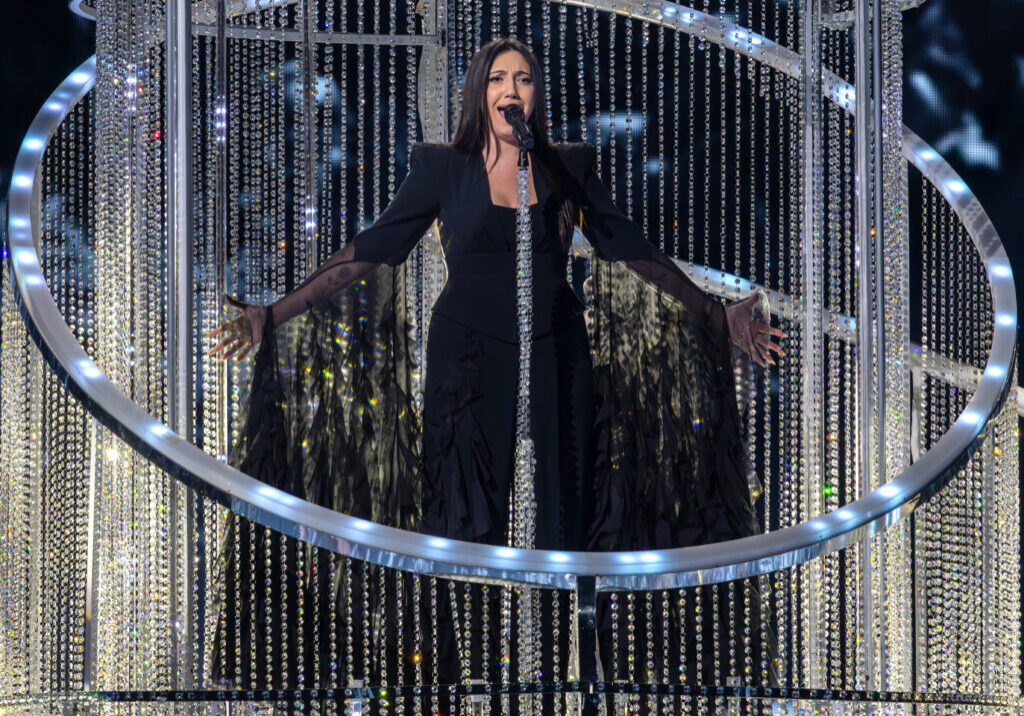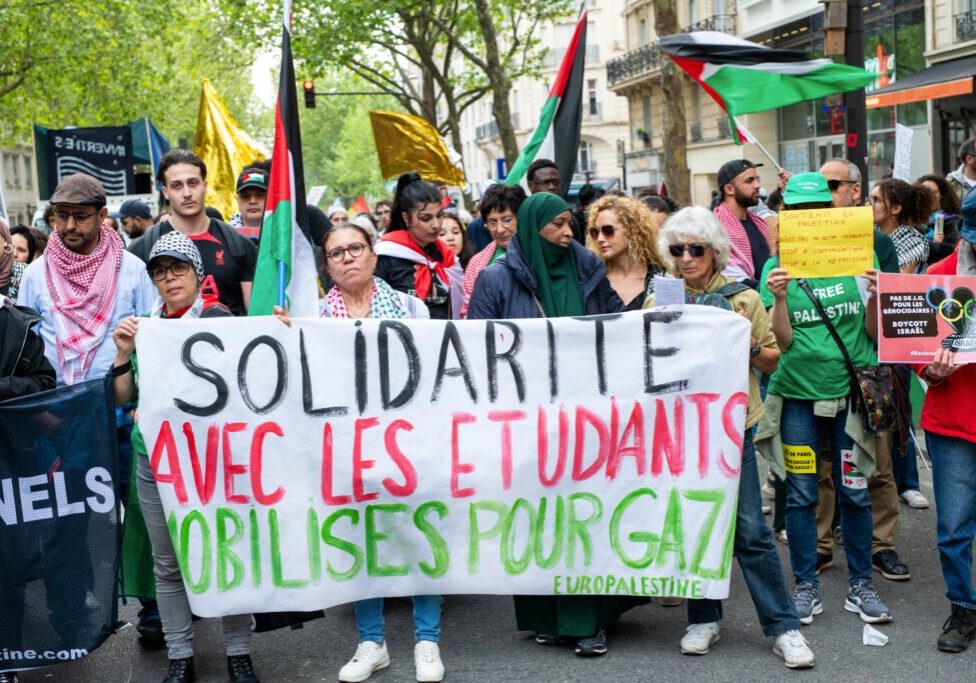Australia/Israel Review
Europa Europa: Rock Star President
Aug 9, 2017 | Douglas Davis

Douglas Davis
The zeitgeist wafting through the corridors of power in the West is producing a raft of unexpected electoral results. Most of the commentariat point to the election of Donald Trump and the British vote to leave the European Union as emblems of the new politics. I would look elsewhere: the elections of Justin Trudeau in Canada and Emmanuel Macron in France.
All four events confounded the conventional wisdom. More particularly in the cases of Trudeau and especially Macron, the voters chose not only to jump a generation but also to hand their votes to political neophytes.
While Trudeau is a relatively seasoned 46 years old, Macron, at just 39, is the youngest president in the history of France. Indeed, his election to the highest office in the land was also the first time he had subjected himself to a popular vote (he had been appointed economics minister in the dying years of François Hollande’s administration).
In political terms, Macron is a formidable global figure: chief executive of a state that is nuclear-capable; a permanent member of the UN Security Council; a central element in the European Union; a key, if somewhat temperamental, member of NATO, and, not least, leader of the francophone nations.
Macron has become something of a rock star among Europe’s political and media classes. Those who are not fighting to take his picture are fighting to be in the photograph. Macron was rhetoric-rich but ideology-lite when he came to office. So, what he thinks matters. What he says matters more. And what he does is of greatest interest.
Last month, he delivered a powerful message to the Middle East when – unusually for a French president – he attended the annual memorial service for the 13,152 Jews, including 4,115 children, who were rounded up at the Vel d’Hiv cycle track in Paris on July 16 and 17, 1942, before being transported to Nazi camps. Fewer than 100 survived. By war’s end, some 76,000 French Jews would be deported.
It took half a century after the war before President Jacques Chirac accepted France had “carried out the criminal insanity of the [German] occupier at the Vel d’Hiv”. But Macron firmly dealt with assertions that it was the collaborationist Vichy regime, not France, which was responsible.
“It is convenient to see the Vichy regime as born of nothingness, returned to nothingness. Yes, it’s convenient, but it is false. We cannot build pride upon a lie,” said Macron. And while French police may have collaborated with the Germans in the round-up, he reminded his audience, “not a single German was involved”.
Macron had another message for the 800 people, including Israeli Prime Minister Binyamin Netanyahu, who attended the ceremony near the Eiffel Tower: “We will never surrender to the expressions of hatred,” said Macron “we will not surrender to anti-Zionism because it is a reinvention of antisemitism.”
Former French prime minister Manuel Valls has consistently described anti-Zionism as a form of antisemitism, but Macron was the first presiding French president to express such sentiments.
Macron’s message flew across the Atlantic, where it was warmly endorsed by US Senate Minority Leader Charles Schumer in a speech on the Senate floor the following day. “I’d like to applaud Macron for his comments about antisemitism,” said Schumer. “He is absolutely right.”
Schumer said that “antisemitism is a word that has been used throughout history when Jewish people are judged and measured by one standard and the rest by another. So it is with anti-Zionism: the idea that all other peoples can seek and defend their right to self-determination but Jews cannot; that other nations have a right to exist but the Jewish state of Israel does not.”
Schumer took the opportunity to label the BDS campaign targeting Israel as a “pernicious effort to delegitimise Israel through boycotts, divestment, and sanctions” that fits Macron’s definition of a “reinvented form of antisemitism because it seeks to impose boycotts on Israel and not on any other nation.”
Back at the Paris commemoration, Netanyahu – the first Israeli prime minister to attend the Vel d’Hiv ceremony – told Macron: “Your struggle is our struggle. The zealots of militant Islam, who seek to destroy you, seek to destroy us as well. We must stand against them together.”
Macron, who is critical of settlements and advocates a two-state solution to the Israeli-Palestinian impasse, is unlikely to burn his political capital on declarative, nugatory peace conferences, a senior French political observer told me, noting Macron’s congenial body language with Netanyahu.
But the last word on Macron and Israel at this early stage in his presidency should go to a former Israeli high-tech entrepreneur, Erel Margalit, who recently threw his hat into Israel’s turbulent political ring. Margalit said he and Macron, a former investment banker, met four or five times to discuss Israeli innovation before the presidential election.
Margalit predicts that, under Macron’s leadership, “France will embark on an innovation economy and Israel will be at the centre of its economic co-operation.”
Tags: Europe






